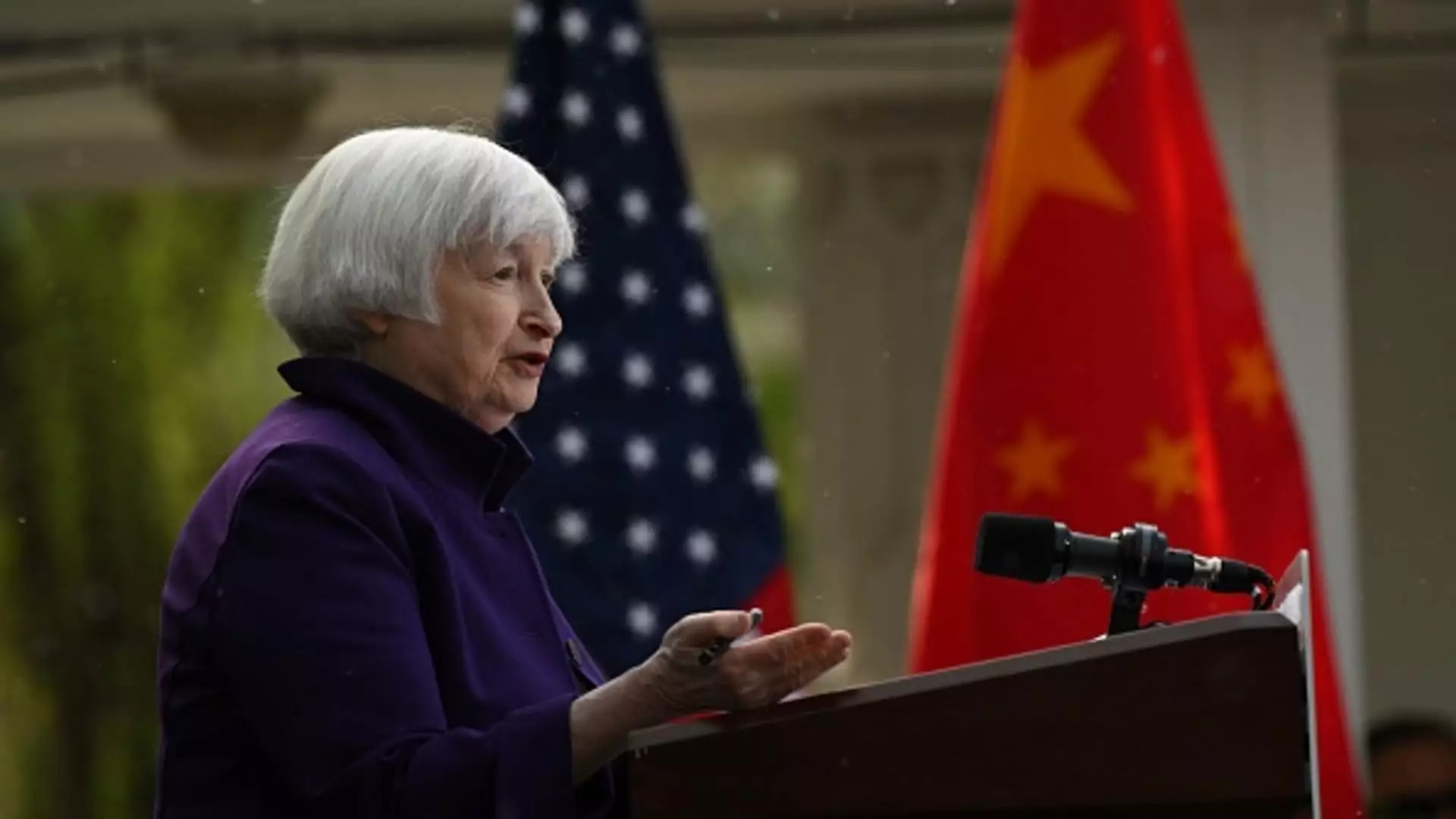The recent talks between U.S. Treasury Secretary Janet Yellen and Chinese officials have highlighted the need for China to make significant changes to its industrial and economic policies. Yellen emphasized the importance of shifting policy during her discussions with Vice Premier He Lifeng, pointing to the potential impact on global trade and the economy. This focus on policy changes sets the stage for future negotiations between the two countries.
One of the key issues at the center of the discussions is China’s industrial overcapacity, which has raised concerns among other countries about unfair competition. The excess production of goods, often subsidized by the Chinese government, has led to accusations of distorting global markets and undercutting competitors on price. The issue of overcapacity is not just about trade; it also has implications for deflationary pressures, banking sector health, and fiscal stress at the local level in China.
Proposed Solutions and Challenges Ahead
Yellen suggested that China could address its overcapacity by boosting domestic demand through initiatives such as supporting retirement or children’s education. However, she acknowledged that these changes would not happen overnight and that it was a topic that had been discussed for over a decade. The high costs of living in China have led to increased savings rather than spending, posing a challenge to efforts to rebalance the economy.
Impact of the Pandemic and Economic Measures
The COVID-19 pandemic has had a lasting impact on China’s economy, with consumer demand struggling to rebound as quickly as anticipated. Unlike other countries that issued stimulus checks, China focused on cutting business taxes and fees to support economic recovery. Additionally, the country has been investing in enhancing its technological capabilities in response to U.S. restrictions on access to key technologies.
Both the U.S. and China have increasingly viewed economic measures through the lens of national security, citing the need to protect critical technologies and industries. Yellen emphasized the importance of exchanging information on economic tools in the context of national security and committing to transparent communication. The discussions during her visit aimed to address differences and find common ground for cooperation.
Future Cooperation and Challenges
Despite the challenges in the U.S.-China relationship, both countries have expressed a willingness to engage in intensive exchanges on economic issues and financial cooperation. Agreements on anti-money laundering and financial stability signal a potential avenue for collaboration moving forward. However, concerns about trade restrictions and maintaining balanced economic growth remain key areas of contention between the two nations.
The recent discussions between the U.S. and China have highlighted the complex challenges posed by industrial overcapacity and economic policy. While there is a recognition of the need for changes, the path forward remains uncertain. Both countries face pressing issues related to trade, technology, and national security, which will require ongoing dialogue and cooperation to address effectively. The future of the U.S.-China relationship hinges on the ability of both sides to navigate these challenges and find mutually beneficial solutions.


Leave a Reply